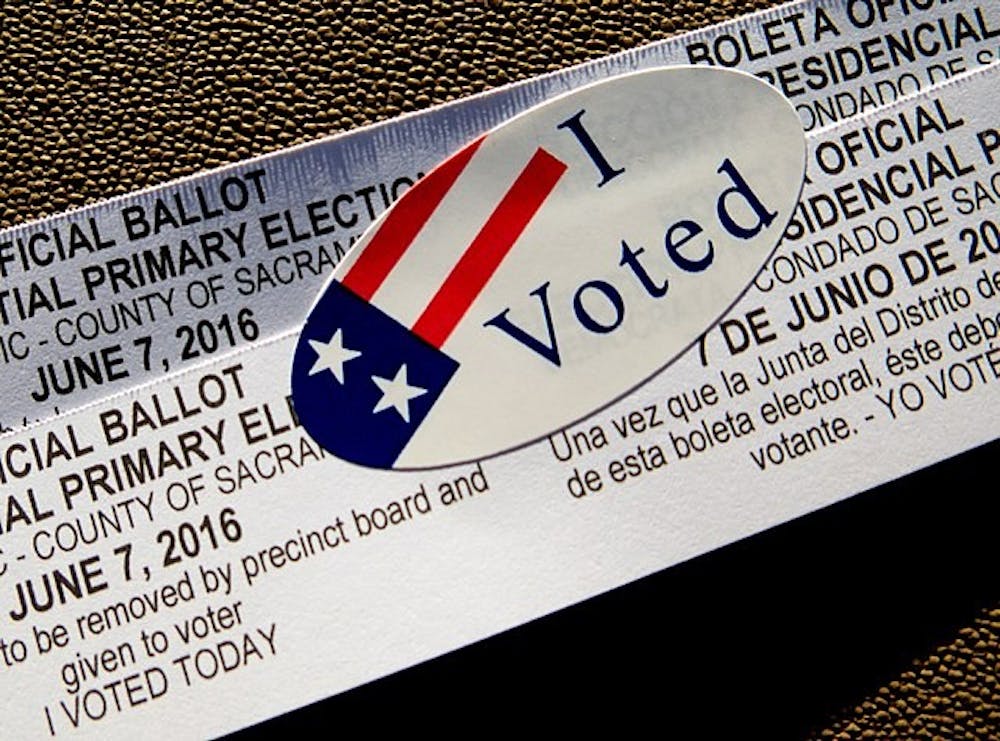Priding himself on his status as a Navy captain and Vietnamese refugee, Republican Hung Cao is running against Rep. Jennifer Wexton in the 10th district of Virginia. Like many Republicans in Virginia, he is hoping to ride the wave of Republican victories from last November, when now-Governor Glenn Youngkin and other Republican candidates won numerous state offices after Virginia had been following a blue trend. Unsurprisingly, Cao is following Youngkin’s model, taking a more moderate approach when outlining his policies. But don’t be fooled by his moderate appearance. Cao’s platform encapsulates much of the tensions found within the Asian American community regarding anti-Blackness and interminority racism as it has continued to develop in the U.S. political sphere.
With divisive rhetoric that utilizes his immigrant status to justify punching down on other marginalized groups, Cao represents the wedge that has developed between the Asian American community and other communities of color in U.S. society. He has made a huge part of his campaign the fact that he is both an immigrant and an American, pointing to his military service as proof of his patriotism. No one is denying that Cao is just as much an American as any other citizen. But at the same time, he uses language like “securing our borders” and “backing our law enforcement” to implicitly suggest that he is opposed to more racially progressive movements and ideas.
One example of this is his discussion of critical race theory. For the most part, Cao is indistinct on policy. He is careful not to specify his positions on access to reproductive healthcare resources like abortion, reminiscent of how Youngkin avoided specific policies in favor of a blanket statement on life. And just as Youngkin used it to catapult himself into the gubernatorial seat, Cao has hinged much of his campaign on “educating children, not indoctrinating them.” He is, of course, referring to the elephant in the room — critical race theory. Setting himself up as a crusader against the “education establishment,” he argues that the classroom must be devoid of political agenda and has called for transparency and accountability within the Virginia educational system.
He leaves one crucial aspect left unsaid — that this policy presumes critical race theory is inherently political, or worse, that it serves no fundamental purpose outside of brainwashing children. This is, on its face, ridiculous. Critical race theory has been racialized by those who fear the outcomes of a better informed electorate — it is a trigger word. Parents and teachers alike have called it a racist dog whistle. Excessively raising concerns over critical race theory allows public figures to make implicit racial appeals while still maintaining plausible deniability when confronted.
Hung Cao, while never overtly referencing critical race theory, is engaging in this racialized tactic when he claims that Virginia schools have become politicized. Yet Cao also uses his identity as a nonwhite immigrant to shield himself from criticism. After being labeled an extremist by Virginia Democrats in support of Wexton’s campaign, Hung Cao accused his opponents of xenophobia. Even though there was no insinuation from Virginia Democrats that he was any less an American because of his political views or immigrant background, Cao succeeded in flipping the narrative into one about race, putting Wexton on the defensive. Socially conservative candidates of color are often able to avoid criticism by claiming that their opponents’ statements are racially motivated — in crude terms, it is the political equivalent of pulling the race card.
Interminority racism — defined as prejudice held by minority groups against other minority groups — is pervasive among Asian Americans. Anti-Blackness in particular has been a longstanding issue among older generations of Asian immigrants. This is further exacerbated by the Model Minority Myth and respectability politics, where Asians are regarded as being of a higher socioeconomic class than Black and brown groups of people. This is not true, as Asian Americans exist across the socioeconomic spectrum — just as other demographics do. By falling back on talking points and demonizing the acknowledgment of racial barriers to access, Cao appeals to whiteness while inflaming these tensions between different minority blocs.
Hung Cao and candidates like him have weaponized their status as a minority — and, more importantly, an immigrant or descendant of immigrants — to represent the American Dream. Virginia Republican candidates like Cao and Yesli Vega — the daughter of Salvadoran immigrants — claim to be living proof that it is possible for immigrants and racial minorities to succeed. But those on the political right, Cao and Vega included, rarely show such sympathy towards those who are struggling in this country, especially when they are nonwhite and are thus systematically ignored — in the same way that fear mongering regarding critical race theory has underscored a reluctance to even mention race in the classroom at all.
Though Wexton is still projected to win in her district, Cao has fired up Asian American blocs in Northern Virginia. This includes political organizations like the Vietnamese-American Conservative Alliance, but even just everyday Asian American voters who are eager to elect other Asian Americans into public office. It’s important that we question exactly who and what issues we are voting for — and what the implications for such candidates would be as our representatives. Candidates like Hung Cao, if they win this November, may end up doing more harm than good to the very people they claim to represent.
Samantha Cynn is an Opinion Columnist who writes on Politics for The Cavalier Daily. She can be reached at opinion@cavalierdaily.com.
The opinions expressed in this column are not necessarily those of The Cavalier Daily. Columns represent the views of the authors alone.







